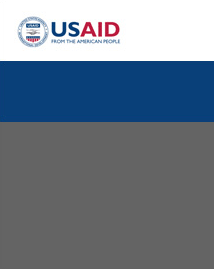- Work With USAID
- How to Work with USAID
- Organizations That Work With USAID
- Find a Funding Opportunity
- Resources for Partners
- Preventing Sexual Misconduct
- USAID Partners
- Acquisition & Assistance Ombudsman
- Acquisition & Assistance Policy Directives
- Development Information Solution (DIS)
- Indirect Cost Rate Guide for Non-Profit Organizations
- Procurement Executive Bulletins (PEBs)
- Progress Report - Fiscal Report 2019
- Implementing Partner Notices Portals
- Partner Vetting System
- Branding
- COVID-19 Guidance For Implementing Partners
- Preparing for a World Altered by COVID-19
- Section 889 Partner Information
- Careers
- Get Involved
Speeches Shim
![]() (508k) Joint USAID-Department of State Report to Congress on Sexual Exploitation and Abuse - October 2019
(508k) Joint USAID-Department of State Report to Congress on Sexual Exploitation and Abuse - October 2019
Sexual misconduct, including sexual exploitation, abuse, and harassment, strikes at the very foundation of foreign assistance and runs counter to the core values of the U.S. Department of State (State) and the U.S. Agency for International Development (USAID). Sexual misconduct causes intolerable harm to its victims, threatens our mission, and undermines the credibility of the entire aid sector. Sexual exploitation and abuse (SEA) is not a new phenomenon. In 2002, grave reports of widespread SEA of displaced women and children by humanitarian workers and peacekeepers in West Africa highlighted both the vulnerability of such populations and the shortcomings of existing mechanisms to prevent such abuses. In response to those allegations, State, USAID, and the broader humanitarian-assistance community implemented measures to protect beneficiaries from SEA. State Department officials regularly raise this issue at high levels at the United Nations, including with the Secretary-General, and through the governing bodies and boards of individual UN agencies. The State Department also regularly provides Congress with information related to SEA in UN peacekeeping operations, including through an annual certification and report by the Secretary of State required by the Department’s annual appropriations act and biannual reports on human trafficking and SEA in UN peacekeeping missions, as required by section 104(e)(2) of the Trafficking Victims Protection Reauthorization Act of 2005 (TVPRA) (22 U.S.C. 7111).


Comment
Make a general inquiry or suggest an improvement.